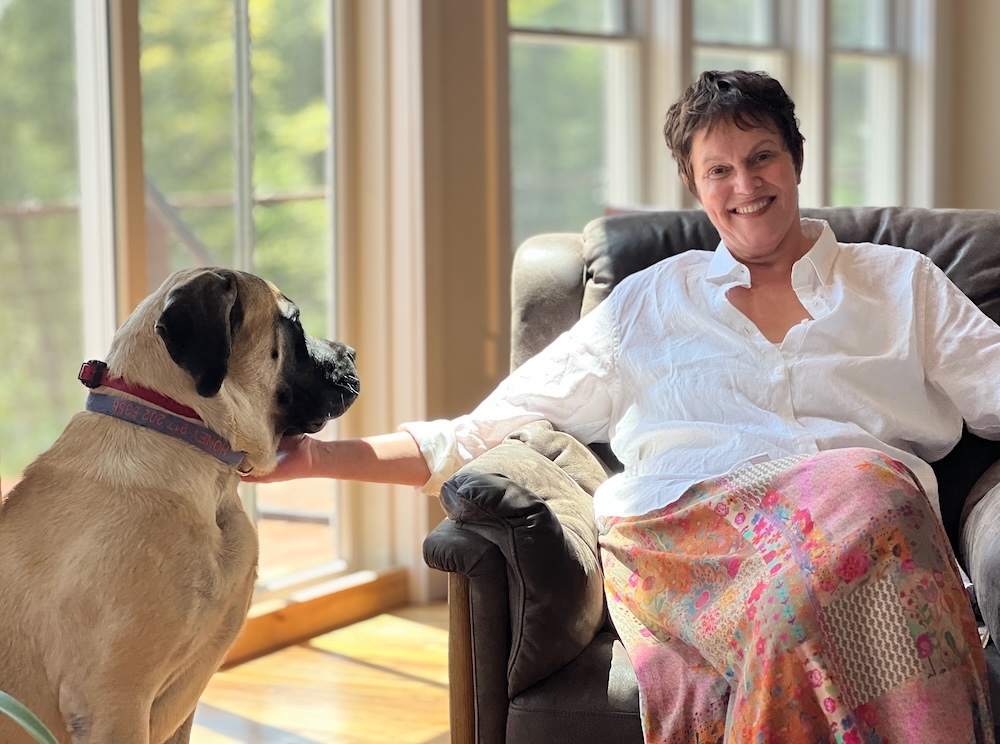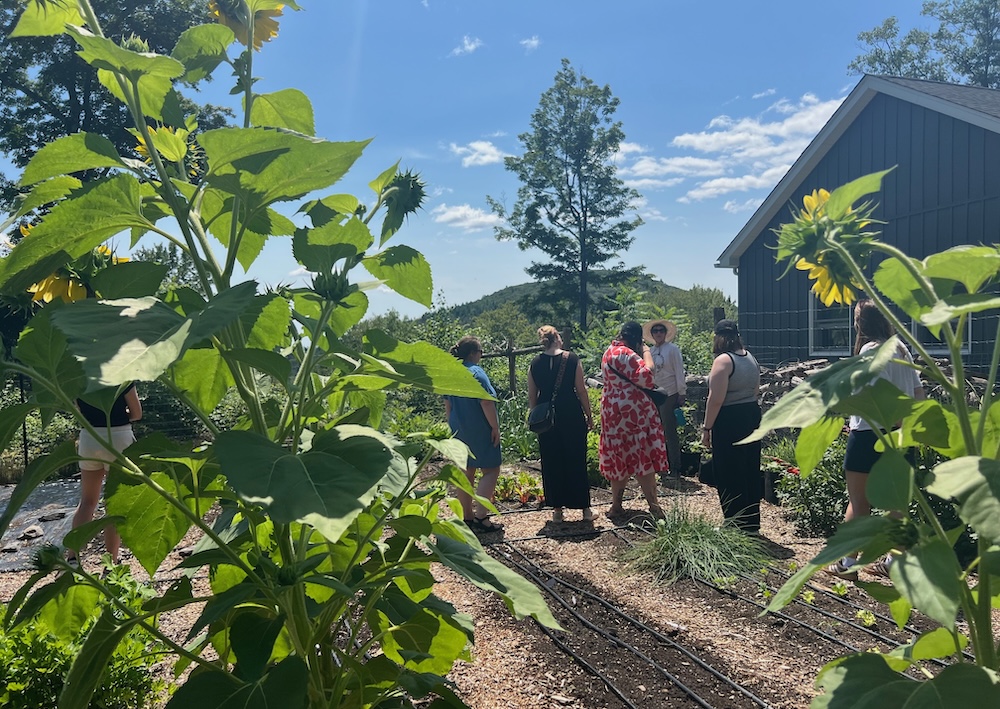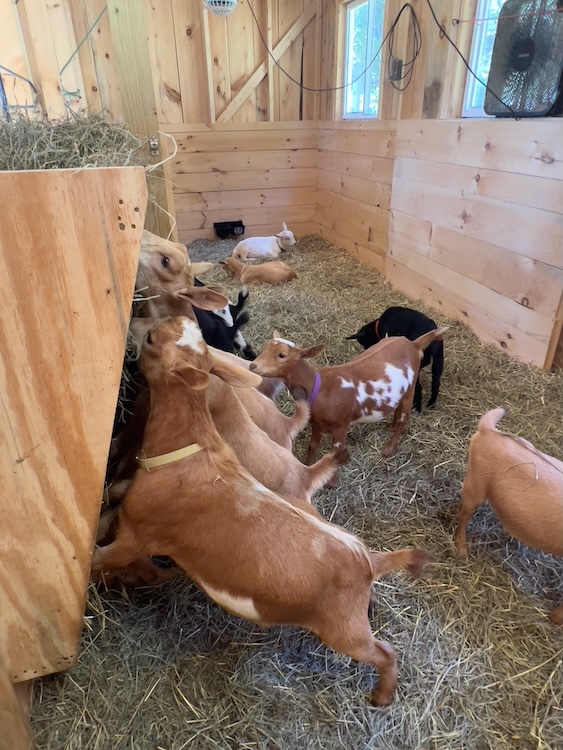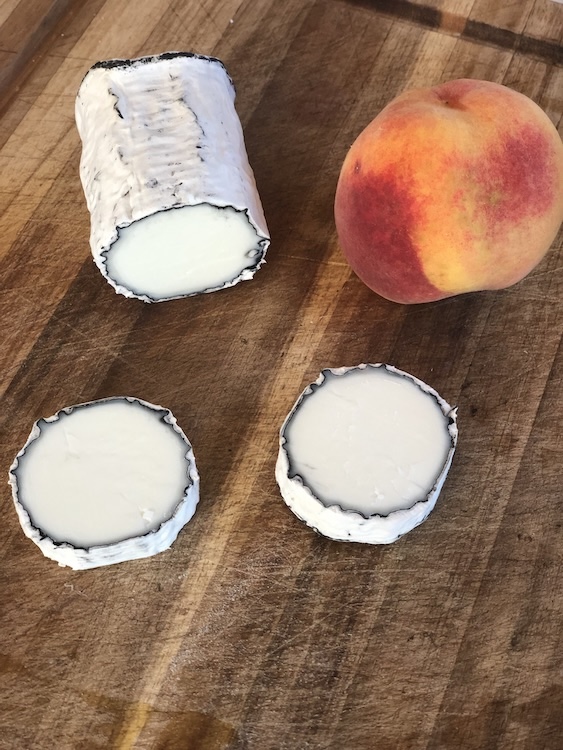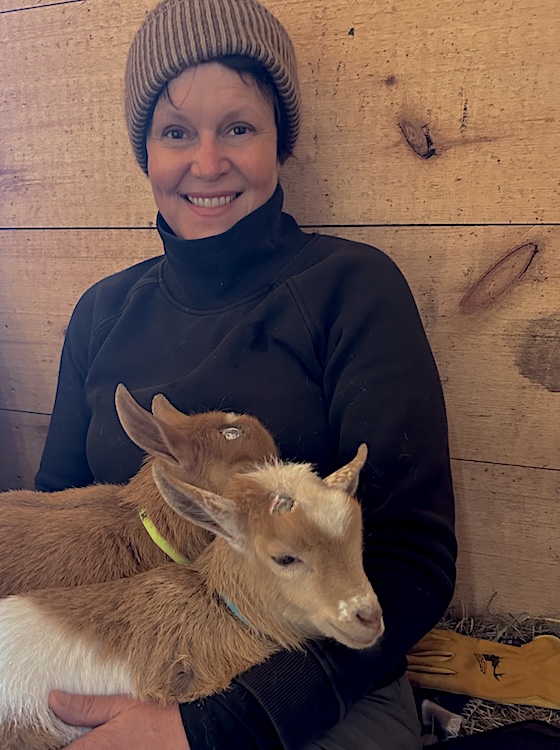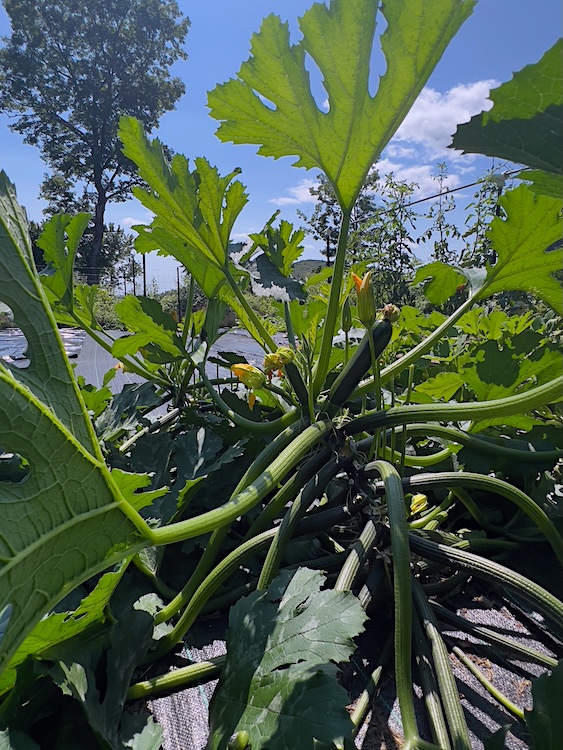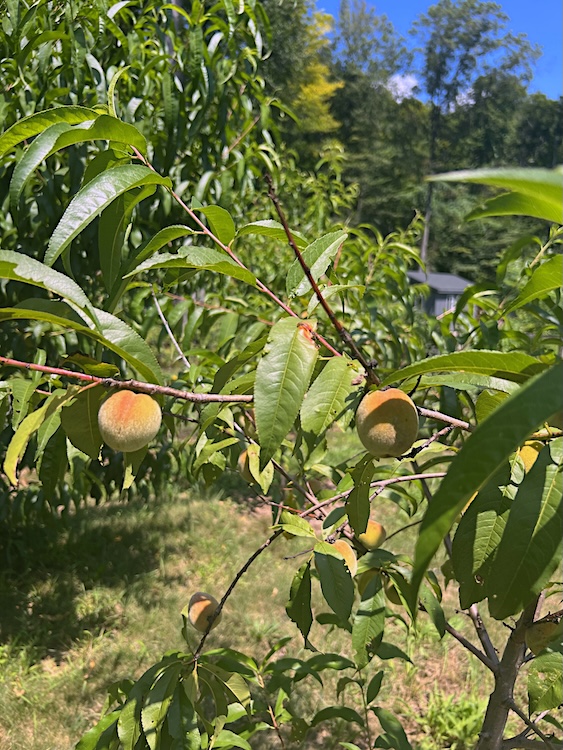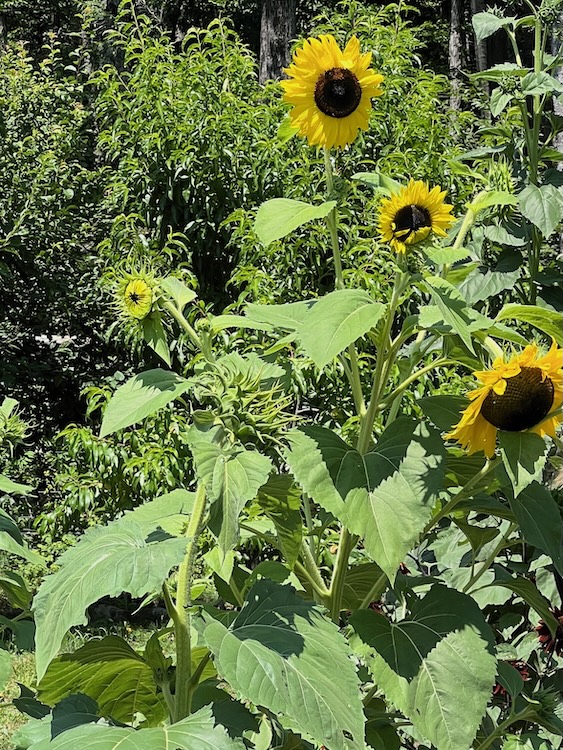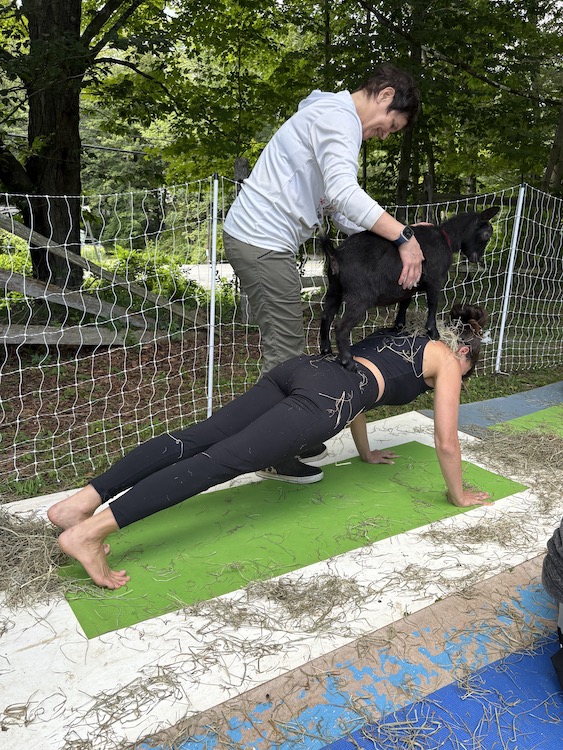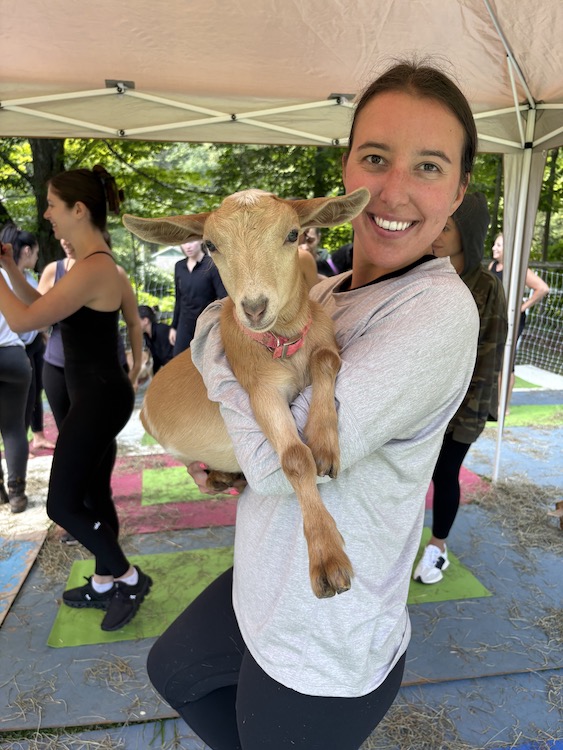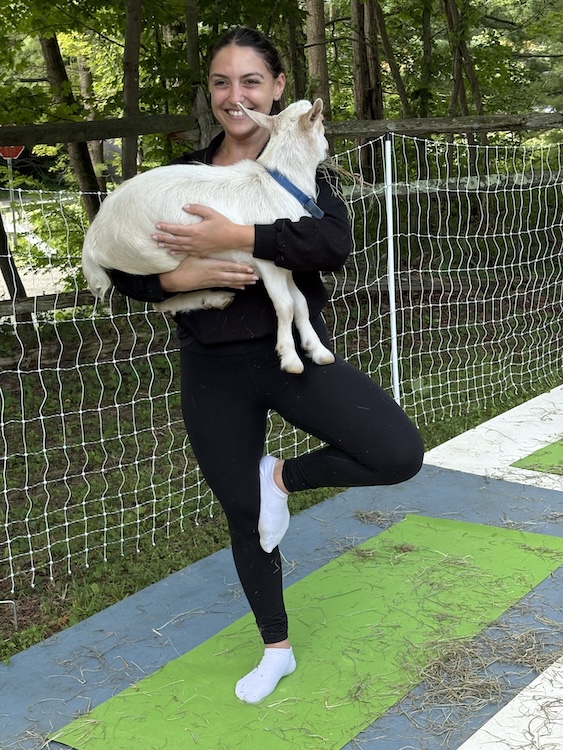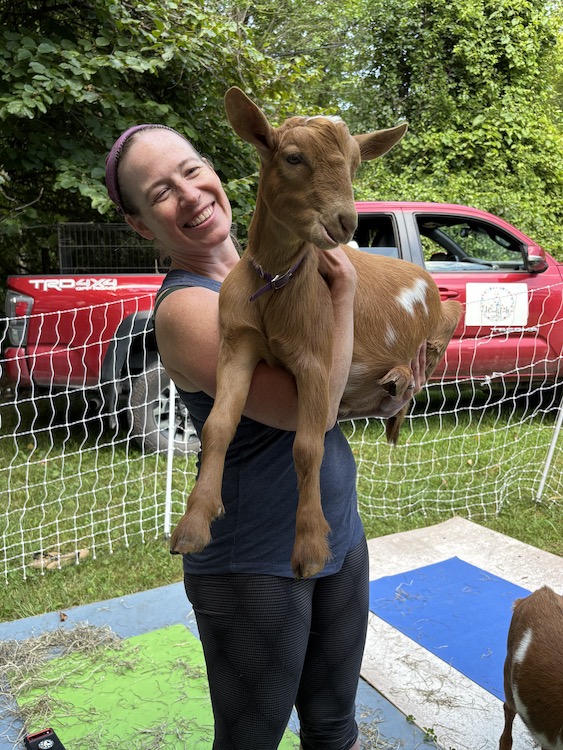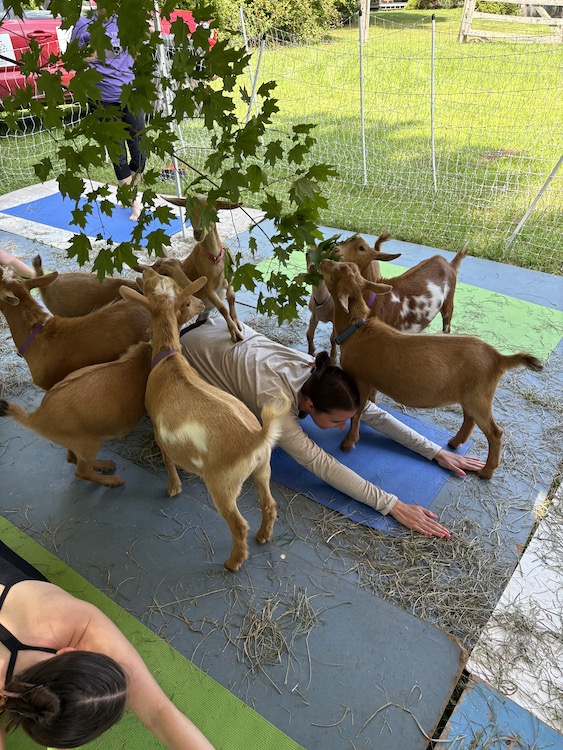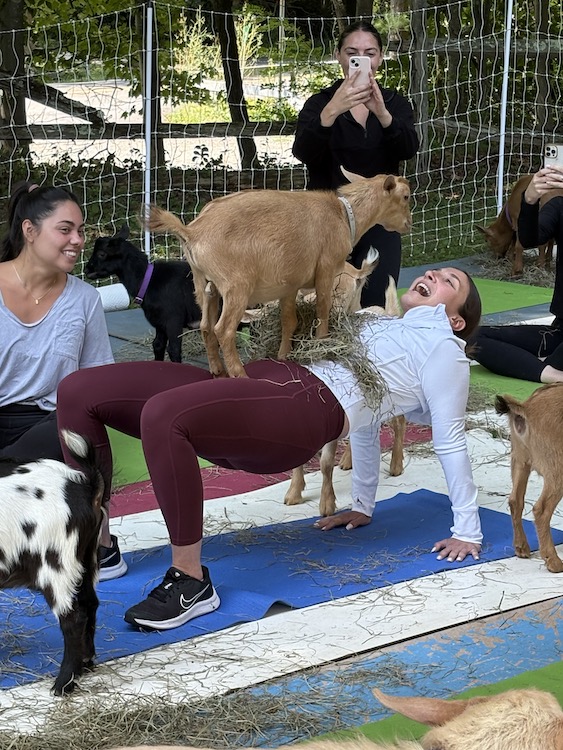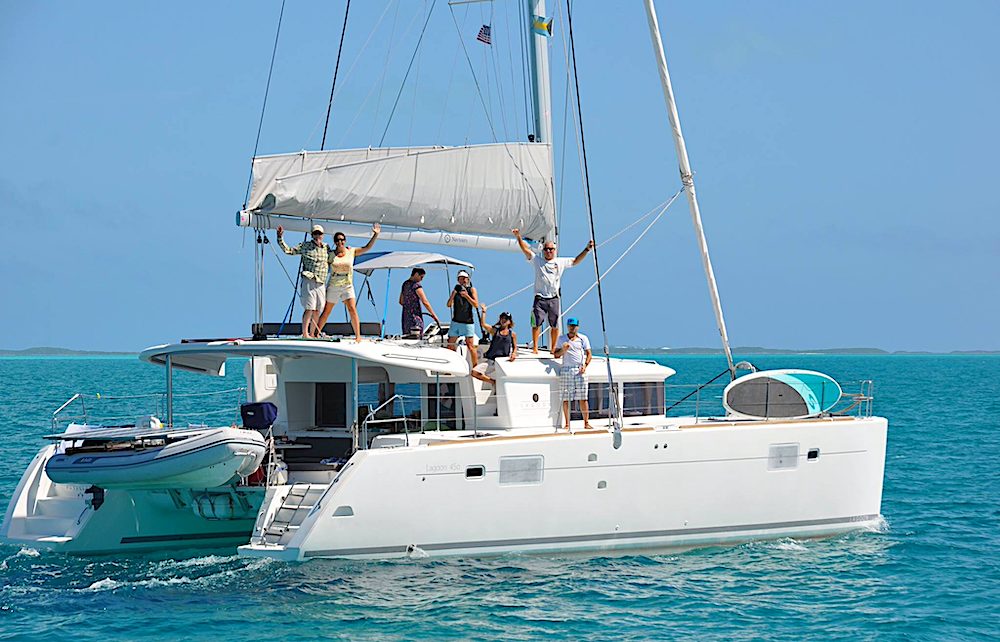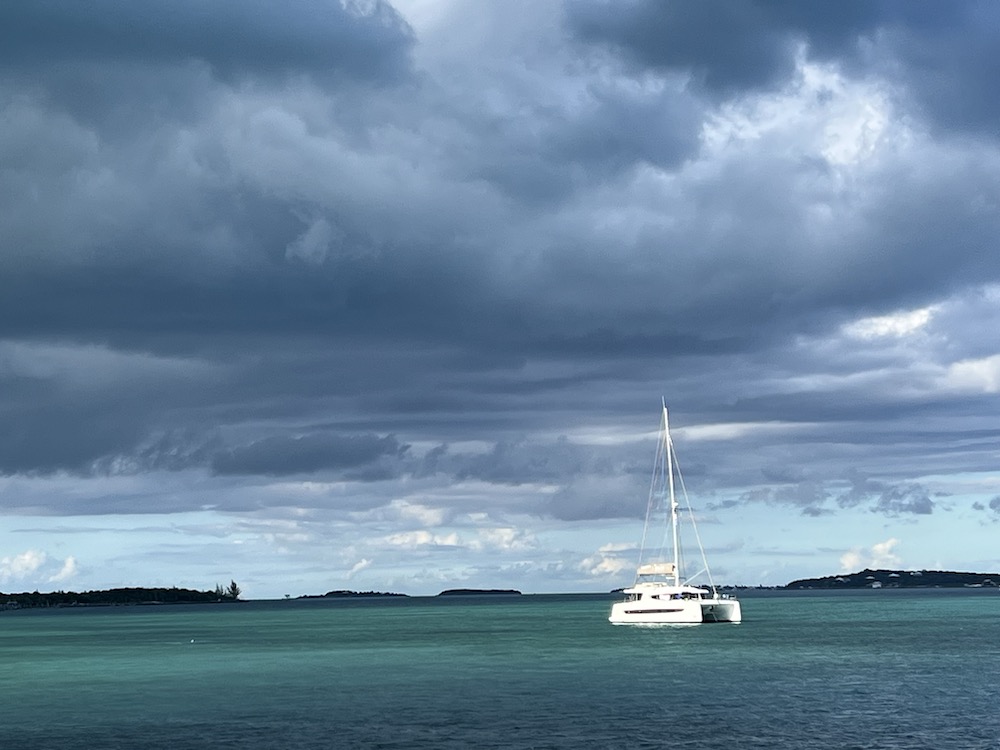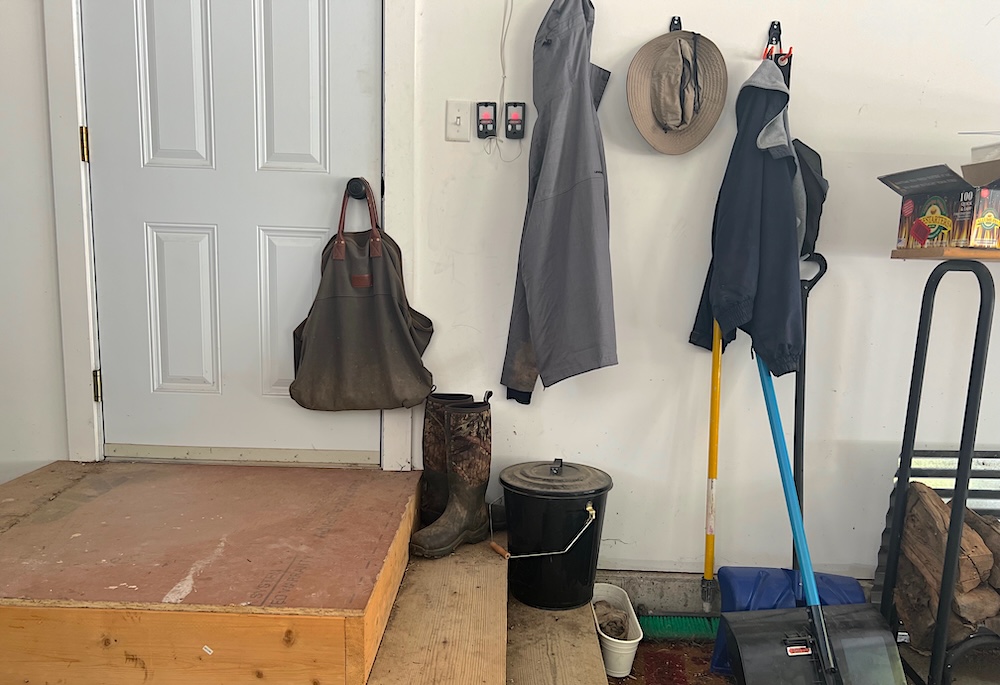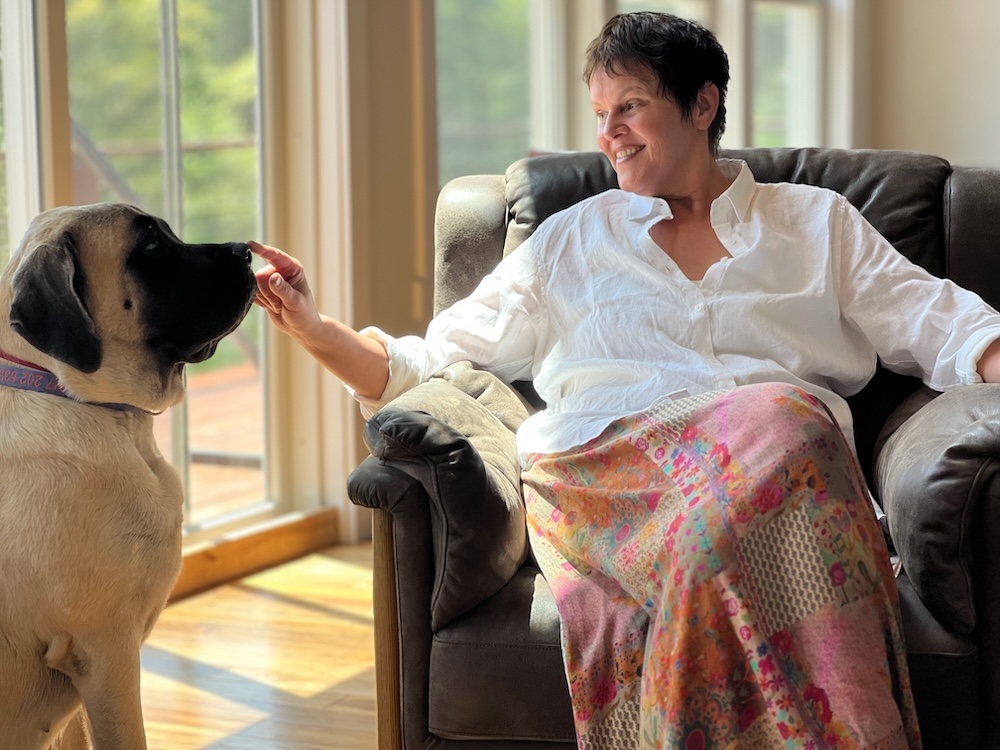
Defying the Current: Victoria Balentine’s Bad-Ass Journey to Joy
From Off-Broadway to the barnyard—by way of the sea—Victoria Balentine has lived many lives, each guided by devotion to healing, adventure, the Earth, and reinvention. Her love of yoga, meditation, and herbal healing took root in her teens, alongside a lifelong passion for sailing. She later found expression on stage, drawn to theater’s power to cultivate empathy in both actors and audiences, before bringing her compassion to countless New Yorkers through a thriving acupuncture and herbal practice—all while chasing wind and salt across the Caribbean as a sailor and kiteboarder, often defying patriarchal expectations of how women should perform.
Today, her story is one of goats, gratitude, and green living, grounded in the rhythms of the regenerative Hudson Valley farm she shares with her husband. Whether midwifing kids in the barn, teaching yoga with goats under the sun, or tending a home powered by solar and fire, Victoria embodies a life of purpose. For her, “sailing into stillness” is more than a phrase—it’s a way of being, a practice of calm and responsiveness in the midst of change. A true trailblazer, she reveals how joy, healing, and stewardship of the Earth can converge into a life both extraordinary and deeply human.
INSIDE+OUT: Where are you originally from, and how did you wind up in the Hudson Valley?
Victoria Balentine: I am originally from Virginia Beach, VA, but moved to NYC in 1996 to pursue acting. I fell in love with the Catskills summer of ‘96, and have been coming up to hike these beautiful mountains ever since. My husband and I bought property and built a house in 2016 in West Shokan.
You’ve had a remarkably diverse journey — from acting and wellness to acupuncture, sailing, and now farming in the Hudson Valley. Can you take us through the path that led you here, and how those past experiences have shaped who you are today?
Victoria Balentine: I had promised myself that if I hadn’t quit my day job by the time I was 30 years old, I would stop pursuing a career in the theater and move on to something else. But what?? Having studied yoga, meditation, and herbal healing since my teenage years, it made the most sense to head in that direction. I got certified to teach yoga in the late 90s and was able to have that as a career while I studied Chinese medicine, both herbs and acupuncture. The transition from the theater was pretty straightforward, as I had always felt that the main beauty of the theater was healing society as a whole by increasing empathy and compassion. It is hard to judge someone once you have walked around in their shoes for a while, and an evening at the theater can do that – give you a sense of someone else’s journey. It can increase your understanding of the human condition, and perhaps yourself. Transitioning from being an actor to a healer just made sense, as the intention of those two things seemed similar to me. I then ended up with a flourishing acupuncture/herbal practice in Manhattan for 20 years.
“Regenerative agriculture seemed to me to be another healing path, just like the theater and my medical practice, but this would be healing the earth, one little place at a time. Eating seasonally, sourcing my food, and reducing my carbon footprint dramatically was something I could do.” — Victoria Ballentine
What inspired your move to this beautiful property with its breathtaking mountain views? Can you share a bit about that journey—and what ultimately led you to embrace farming as your calling?
Victoria Balentine: I grew up sailing in Virginia, and I had been sailing all over the Bahamas and Caribbean since I was 20. Starting around 2015, I suddenly was watching reefs I had known and loved for over 30 years die off. It was heartbreaking. I kept asking myself what could I do about the environment and the horrible decline of the ocean? As I was winding down my acupuncture practice, I met some neighbors in West Shokan who were farmers and practicing something called “regenerative agriculture.” I started looking into it, and learned it is a type of agriculture/farming that leaves the land more healthy/fertile than when you found it. You can restore and aid ecosystems while feeding yourself, your family, and your community. Regenerative agriculture seemed to me to be another healing path, just like the theater and my medical practice, but this would be healing the earth, one little place at a time. Eating seasonally, sourcing my food, and reducing my carbon footprint dramatically was something I could do. Our property in West Shokan was not big enough to start a regenerative farm, so we looked around for a bigger parcel and found this amazing place near Woodstock, in the town of Shady.
What does regenerative farming mean to you, and why is it important?
Victoria Balentine: Healing the land that you live on. Restoring it from the damage of previous poor human management. Increasing fertility in a time when fertility is dropping exponentially all over the world, both on land and sea. Sowing plants, trees, and seeds that are heirloom and diverse, so we have more resilience in our food system. Finding solutions to problems that have positive repercussions for the whole farm, i.e., not just annihilating a single pest, but saying, “What can I add to mitigate this situation that would boost fertility, diversity, and resilience at the same time?”
Tell us about your home and how sustainability led to the design both inside and outside?
Victoria Balentine: The house is oriented for passive solar, meaning in the summer, when the sun is high in the sky, we get very little direct sunlight inside in spite of our big wall of SouthEast-facing windows. In the winter, when the sun is low, it shines through those windows to warm the house. We built a stone-masonry stove in the center of the home that heats the whole house with one single fire per day. Between the stone fireplace and passive solar, it will be 70 degrees inside when it’s 15 degrees outside. The wood for the masonry stove comes from our 50-acre property, so that is a pretty sustainable fuel. The rest of our trees are sequestering carbon all year long. We use very little propane because of all of this. We have solar panels, of course. We also have a root cellar and try to grow and store as much of our food as possible, and locally-source the rest. Just buying locally and eating seasonally can reduce your carbon footprint tremendously. I feel these are things people can ‘literally do’ to help heal the planet.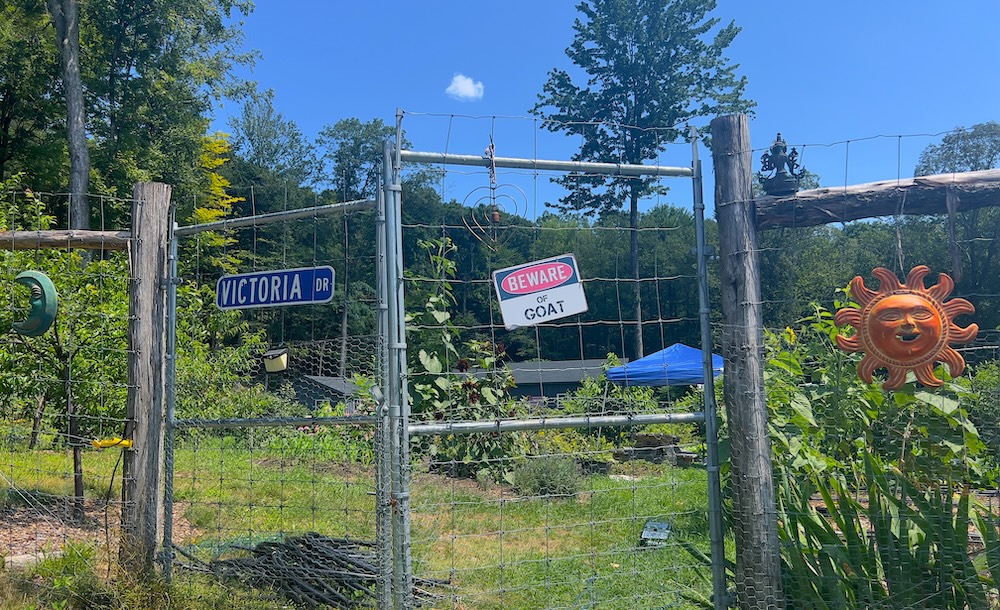
What makes living in the Hudson Valley special for you?
Victoria Balentine: The landscape, the mountains, the Esopus, the beauty. There is so much art and music, and the people living here are just so wonderful and interesting.
What are the most challenging and the most rewarding aspects of running the farm?
Victoria Balentine: Well, regarding rewarding, I love the goats more than I can say. They all have such personalities. The baby goats are, of course, just adorable, and it never gets old. I love planting things and watching them grow. I love turning milk into artisanal cheeses. The challenging part is never-ending. You have no idea what problem is going to hit you as the day goes by. Frequently, I will say, “Well, I didn’t know THAT was on the menu” when some unforeseen crisis arises.
What was the inspiration for Woodstock Goat Yoga?
Victoria Balentine: I taught yoga for years, and I just loved it. Then I got goats and loved them. A friend said “Have you heard of Goat Yoga?” I was like “No???” So I watched a YouTube video and was like, MY GOD, IT’S MY DESTINY.
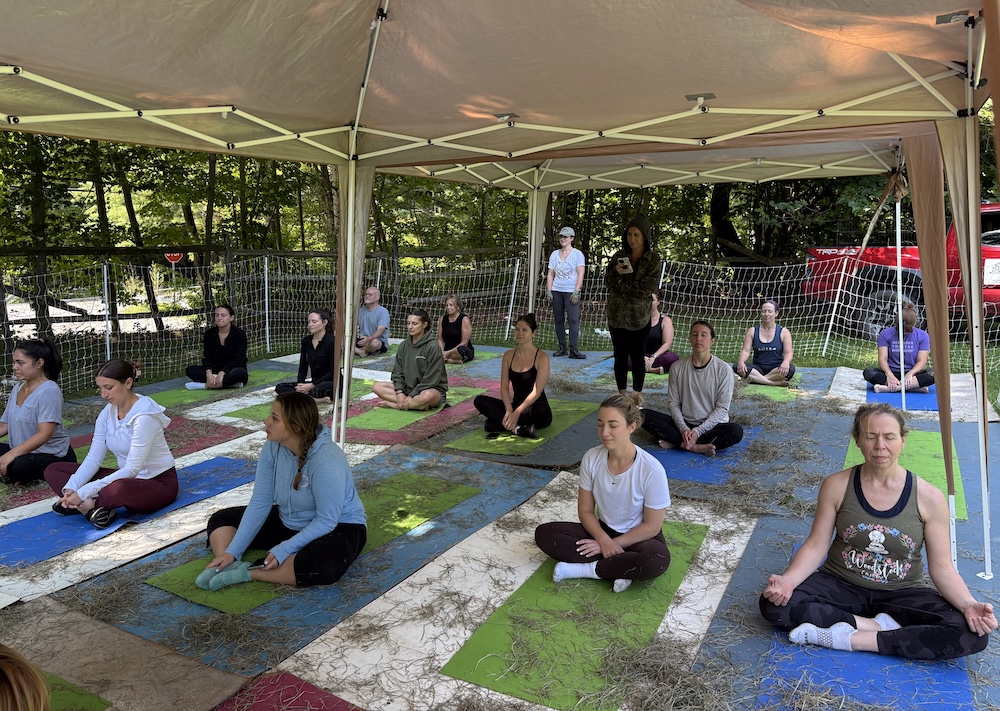
Tell us a funny or frightening farm story that happened to you?
Victoria Balentine: I had to have knee surgery on a Monday in the middle of ‘kidding season’ (when the goats give birth). For a million reasons, I have to be present at the births, as there are so many things that can go wrong. Babies can be malpositioned, the pelvic canal can be too narrow, the mom might not be able to clean and dry them quickly enough when it’s bitterly cold out, so they get hypothermia… it goes on and on. We absolutely have to be present at every birth. So our goat, Princess, was due on the Saturday before the surgery. No problem. I will be there on Saturday and get the surgery on Monday. Saturday came and went. No babies. Sunday came and went. No babies. Sunday night came and went. No babies.
Now it’s Monday morning, and I have to leave by 9:30 am for the surgery. I look at my husband at 8:30 and we are just like “What are we going to do?” I said I think I have to ‘go in’, i.e. lube up and stick my arm inside the birth canal to see what the heck is happening. And he said “Well, don’t go in just because there is a time constraint.” And I said, “Well, there IS a time constraint, and also I think something is wrong, and I have to go in!” So I lube up and go in, and sure enough, a baby was malpositioned in a very bad way, so I managed to move her around and get her out alive, the rest of the babies followed eventually one by one after she was out of the way.. Amazingly, they all survived. We got them cleaned up, umbilical cords cut, latched on (nursing), and I ran back to the house at 9:22am, washed my arms, and left for the surgery at 9:30 sharp. I didn’t even have time to take a shower. I smelled like amniotic fluid and goat. My surgeon thought it was hilarious that I had been arm deep in a goat minutes before arriving in his OR. He was like “Of course you were.”
What local businesses do you rely on to be successful?
Victoria Balentine: Barnyard on 28. We get all our feed and most of our animal husbandry supplies from them. They are the best. We have two guys that supply our hay which is utterly (udderly ha ha ha) essential. Hay is life, and we can’t make our own here on the farm
What is missing in the area that you wish we had?
Victoria Balentine: It’s not sexy, but most farmers are desperate for more abattoirs that are willing to process smaller numbers of animals. We do not have a meat operation here, but my friends who have pigs, cows, sheep, and other animals always scramble to process and get the meat to market.
Who or what inspires you personally?
Victoria Balentine: Badass women who have carved a place in the world for themselves despite the patriarchy.
Tell us something about yourself that people would be surprised to know.
Victoria Balentine: I have a ridiculous fear of lightning.
What are some of your favorite ways to unwind and unplug when you are not farming or teaching yoga?
Victoria Balentine: Tubing the Esopus is my favorite thing in the summer, hiking these beautiful mountains, relaxing, and reading a great book on the porch, which I rarely have time to do! Hanging with girlfriends. And of course, sailing trips to the Bahamas.
Much of your journey as a successful entrepreneur has taken place in industries traditionally dominated by men. What has it been like to navigate these spaces, and what has driven you to keep pushing forward?
Victoria Balentine: Being in a male-dominated field like kiteboarding, sailing, and even farming, and having men underestimate me is one of my favorite things. It is just so deliciously and delightfully fun to prove them wrong. There are so many examples, but sailing especially… no one knows what to do with a female captain and an all-female crew. Everyone is always like “Oh, how sweet, a bunch of middle-aged ladies on a boat… but where is the captain?” It just doesn’t compute.
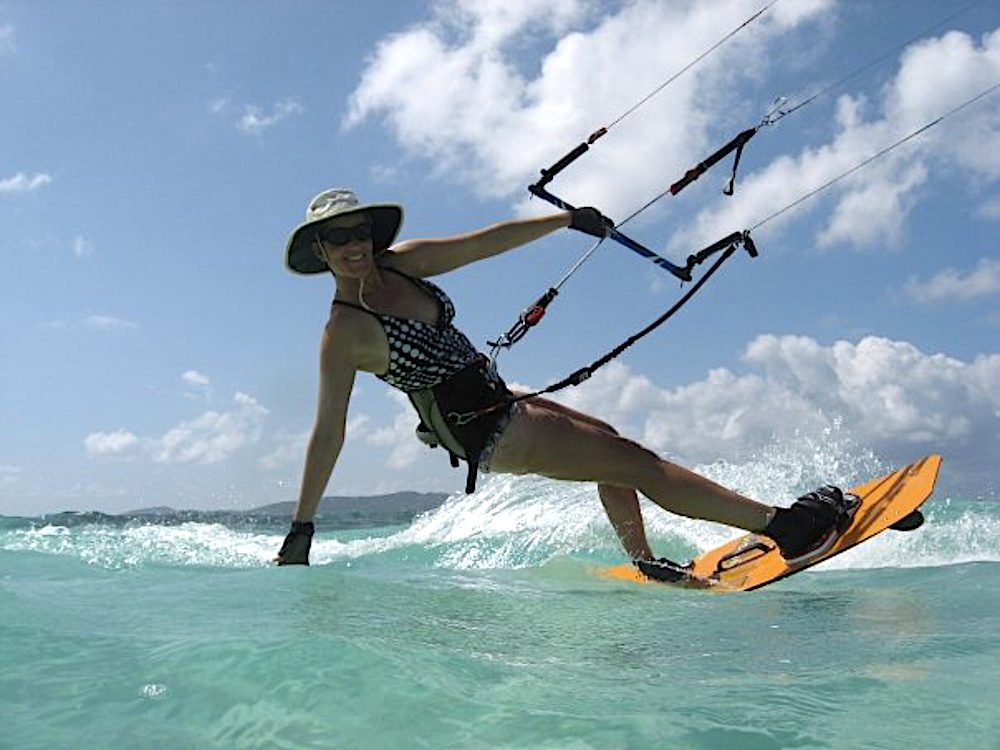
In my late forties, I was setting up my kiteboarding gear on a beach, wearing a pretty pink polkadot dress and a white hat. What can I say, like, looking nice. I was the only female on the beach (as per usual at that time). A youngish guy was setting up his gear, a twenty-something testosterone-poisoned male, looked me up and down, and said with utter disdain, “You look like you are going to a garden party.” I smiled, changed into my wetsuit, and got out on the water. I shredded all afternoon doing crazy jumps and stunts. It was a great day..When I got back to the beach, he came running up to me and said, “I am so sorry!! You were killing it out there!!” I just laughed and said, “Underestimate an older woman at your peril, kid.”
“Being in a male-dominated field like kiteboarding, sailing, and even farming, and having men underestimate me is one of my favorite things. It is just so deliciously and delightfully fun to prove them wrong.”
If you could have one superpower, what would it be?
Victoria Balentine: Something that would help us humans be less destructive to the environment and each other.
What is your current state of mind?
Victoria Balentine: I find meaning and purpose in what we are doing here. The goat yoga brings people a great deal of giggles and happiness. That is something to be incredibly grateful for… to be purveyors of joy in this time. I am worried about the state of the environment and the human impact on the land and sea, but my husband and I are incredibly grateful for the farm and our life here. We are so lucky and incredibly blessed, and we say so every day.
+ + +
Photos Terry Dagrosa | Sailing and water sports photos courtesy of Victoria Balentine
Follow/Connect with Victoria Balentine via Website | TikTok | Instagram
Write a Comment
You must be logged in to post a comment.



